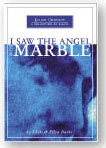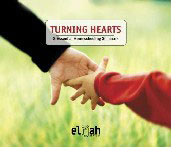 The Joys of Reading:
Summer Vacation The Joys of Reading:
Summer Vacation
and a Good Book
View past ejournals HERE
(reprinted from Home School Marketplace e-journal, May 23, 2006)
If you would like to submit an article to be considered for our ejournal, CLICK HERE>>
When I was younger, few things were more wonderful than summer vacation and a good book. In fact, there still isn't much that can beat that combination.
Every summer since I've been born, my family has gone to a beach cottage in Florida owned by my grandparents. In 1929, my grandfather and his brother bought two ocean-front lots at St. Teresa Beach and from that time to the present the two houses they built side by side have been the summer retreat for my family and my numerous aunts, uncles, nieces, nephews, cousins, and their friends.
The house itself has never been much more than a huge screened-in building with hardwood floors and walled off spaces for bedrooms, kitchen, and a bathroom, plus a wide front porch filled with rockers and hammocks. It is a child's delight, because it doesn't matter how sandy your feet, how messy your tackle and bait, or how many dogs and cats you bring inside, you just sweep out the house out and it's clean enough.
Until recently, there was no telephone, no TV, and, of course, no internet or video games. So when you went to St. Teresa, you went to relax and enjoy the beach and to visit family.
Almost every summer of my life, I've headed to St. Teresa in June. First with my parents, and later with my own children.
Throughout my childhood, right after school was out, we would pack up our old station wagon with clothing, toys, tackle, life vests, and whatever else we would need at the beach and my parents, two sisters and I and assorted animals would drive to the Florida panhandle for three weeks of sun, ocean, and visiting relatives. During those weeks of carefree sunny days, my best friends were my dog Penny, my cousin Betsy Lowery, my friend down the beach Elizabeth Henderson, our little sailboat, and books.
My grandfather subscribed to the Readers' Digest Condensed Books program so there was always a bookshelf bulging with condensations of the most recent novels, plus a whole lot of other books that had accumulated from past visitors to the cottage. There were also many books that my mother and her sisters and brothers had read as children--all of Louisa May Alcott's books, some of which are now out of print; lots of Henty books and Holling C. Holling and L. Frank Baum. They were all hardbound and early editions. If I had those books today, I could probably make a fortune selling them on E-Bay.
It was a virtual feast of books. One summer I read all of Louisa May Alcott's books, another I read Daphne DuMaurier's mystery novels, and another I read all of Mary Stewart's books about King Arthur. Once I even managed to complete Gone With the Wind. ("Land, Katie Scarlet...It's the only thing worth dying for.") Ah, literary bliss.
When my daughter came along, she became part of the beach cottage tradition, and she, being an avid reader, took up the torch and spent rainy days with her nose in a good book.
But when the boys were growing up, it was a different story. They were much more interested in figuring out how to set off firecrackers under the dock or how to gig stingrays than in spending their time at the beach reading.
That's when family read-alouds became such a vital part of our time together. We would start reading a good book aloud on the way down in the car (or listen to the audio), then continue reading it together once we got to the beach. Before long they started taking books down from the old bookshelf or bringing their own to read.
Right now I am at St. Teresa, and of course have a stack of books by my bed that I am reading. So, in honor of summer and good books, I thought I'd write a little about the importance of raising children who love to read.
I've also created a list of my top recommendations of books for children at different age levels. You can read my lists HERE. Just choose the link to whichever age level you're interested in.
The Value of Summer Reading
Here's an excerpt from the May, 2003 issue of Classroom Connect magazine:
"Educators consider summer reading very important in developing life-long reading habits, in maintaining literacy skills and in promoting reading for pleasure. Studies have repeatedly shown that children who continue to read during the summer months perform better when school resumes in the fall.
Research has shown that the most important factor in avoiding the decline in reading skills, educators refer to as "summer learning loss", are summer reading programs...."
What's the Big Deal About Reading A Lot of Books?
C. S. Lewis once said, "We read to know we are not alone." What this means to me is that, through books, more than through any other medium, I can have conversations with the minds of other people--how they think, what they believe, what they value. And more important, I can find out more about myself. There is something identifying and affirming to realize that other people have thought the same thoughts, had the same struggles, felt the same longings.
Reading also provides a window on the world. Robert Lewis Stevenson wrote, "There is no frigate like a book," meaning books can take you to times and places that you could never go in real life. I can read Perelandra and be on Venus or Ben Hur and be in the Roman Empire at the time of Christ or Cold Sassy Tree and feel what it was like to live in a small town in Georgia in the early 1900s.
From an educational perspective, being well-read places you in the small percentage of people who have a broader perspective of life--the movers and shakers of the world. Why? Because readers have superior language and thinking skills. They also know about life outside their narrow slice of it. They can see both the "big picture" and the details and keep a sense of perspective because they have read enough to expand their minds beyond the parameters of their own lives.
What Do We Want to Communicate About Reading?
There are four main concepts we want to communicate to our children about reading: (1) Written words have value because they are a vital communication tool; (2) Written words can be personally enjoyable; (3) Written words increase understanding and power over the world; and (4) Reading is something most people can easily learn to do. We communicate these concepts through:
-
Having a print rich environment. This simply means our house is full of good things to read.
-
Reading aloud to the child from an early age, pointing out simple words, running a finger from left to right under the lines of print, and encouraging the child that soon he will be able to read these books himself.
-
Letting the child see you read. Children take their cues about what is worthwhile from their parents. If the parents seldom read, the children assume reading is not a valuable activity. Boys need to see their fathers read.
-
Letting the child see you attach value to books. This not only means that you have your own library of personal “treasures,” but it also means that the child sees you enjoy reading and go to books for answers to questions you have.
If books are to become an important part of your child's world, they must appear to be important to you. It is difficult to convince a child who never sees his or her parents with a book that reading a pleasurable activity, and self-education is a worthwhile use of time.
Many parents lament that their daughters become avid readers, but their sons are totally disinterested. Our question to these parents is: Do your children ever see their father read? Boys who only see Mom read begin to associate reading with feminine activities.
Fathers we have posed this question to give all sorts of excuses for not reading--they don't have time, they are slow readers, they can't find anything they want to read, they don't like reading, and so on. If you are a father who doesn't enjoy personal reading, consider reading aloud to your children books that they enjoy. This way they can see you interacting with books, even if you don't read much yourself.
The Importance of Reading Aloud to Your Children
You will be amazed to discover that the simple act of reading aloud to your children is highly enjoyable, it deepens relationships, provides unique opportunities for sharing, and allows you access to their lives in ways few other activities can.
Reading aloud doesn't need to stop when the children can read. We read aloud together all during our children's schooling years, and I still read aloud on long car trips. I even read aloud with friends. We try to save books we want to discuss and read them aloud together, pausing whenever the book sparks an idea someone wants to comment on.
I even have adult friends who get together once a week and read a play. The switch around the roles and have a great time together.
Making Reading Aloud Memorable
Below are some suggestions for reading aloud gleaned from our own experience and from Read Aloud Handbook.
1. Begin reading to children as soon as possible. Studies have even shown that reading to children in the womb enhances language recognition skills.
2. Try and establish a routine time that children can anticipate and when reading can be leisurely and uninterupted.
3. Remember, the art of listening must be cultivated. Expect short attention spans at first. If you notice interest waning, read shorter selections or find books with short stories or chapters. However, if it is obvious that no one is interested in the book you've chosen, don't hesitate to put it aside and choose another.
4. Start with picture books and build to stories and novels. Reword difficult passages. Vary the length, difficulty, and subject matter.
5. Find a suspenseful spot at which to stop.
6. Make sure everyone is comfortable.
7. Allow time for discussion and meaningful interruptions, but don't turn discussions into quizzes, impose interpretations of the book's meaning on the listeners, or insist upon using the book as a teaching opportunity. Resist the urge to "educate" while reading aloud.
8. Use plenty of expression, varying your tone of voice to fit the dialog.
9. Read slowly enough for the listeners to build mental pictures of what they have heard. Slow down in picture books and let children fully examine the illustrations.
10. Add a third dimension to the book whenever possible, like serving blueberries when reading Blueberries for Sal.
11. With boys, let the father do as much of the reading as possible.
12. Provide crayons, Duplos, etc. for active children who find it difficult to just sit and listen.
13. Be aware of a child's emotional level and choose books that do not violate it. What this means is, don't read scary stories to a fearful child, sad animal stories to a child who has a tender heart toward animals, etc. You want your read aloud time to be something that that children look forward to, not something that upsets them.
The Benefits of a Print Rich Environment
It has been proven that children who grow up in homes where they have access to lots of good books for them to read whenever they choose have naturally superior language art skills.
For those reasons, we say READ, READ, READ; WRITE, WRITE, WRITE; and TALK, TALK, TALK. A child who hears English properly used at home and consistently reads well-written literature will automatically internalize correct grammar, word usage, capitalization, punctuation, and spelling and will also develop an extensive vocabulary.
If that weren't enough to convince you that reading is one of the most important activities your child can do, Cradles of Eminence studied common factors in the childhoods of 400 eminent men and women and concluded: “A rule of thumb for predicting future success is to know the number of books in the home.” With this in mind, you may want to slowly but surely build your own home library of proven favorites.
Although it may seem easier and cheaper to simply check books out from the library, children love to read and read and reread their favorites, and they take pleasure in having copies of books that have become their special friends. Also, if you have a large family, the books become an investment to be passed down to each succeeding child, and perhaps even to grandchildren.
The books we recommend are all proven favorites with children and are considered great children’s literature.
For our list of top books for children of all ages, GO HERE>>.
What determines if a book is good for children?
There are three questions you can ask to determine if a book is good for children:
1. Has it stood the test of time?
2. Is it well written? Does the writer "talk down" to children, using jargon, modern language or a trite story line, or does he/she tell the tale well? C. S. Lewis said: "Any book worth reading at 10 should be worth reading at 50."
3. Does it touch the heart in a positive way? Does it reinforce noble desires or does it create longings that cannot be filled in a godly way?
What do we read?
For our list of top books for children of all ages, GO HERE>>.
To help Christian parents choose the best in children’s literature, the books below contain recommendations and annotated book lists.
 The Read-Aloud Handbook by Jim Trelease. This book not only convinces you of the critical importance of reading aloud to your children, but it also has lists and lists of the "best of the best" books that all ages can read aloud and enjoy. The Read-Aloud Handbook by Jim Trelease. This book not only convinces you of the critical importance of reading aloud to your children, but it also has lists and lists of the "best of the best" books that all ages can read aloud and enjoy.
 Invitation to the Classics by Louise Cowan and Os Guiness. Subtitled, “A Guide to the Books You Always Wanted to Read,” the authors have prepared a history of literature by presenting, in chronological order, important literature in the history of Western civilization. They start with Homer, through the Greek poets, the Romans, the Middle Ages, and so on to the twentieth century. Each chapter analyzes a different author’s work from a Christian perspective, explaining his or her worldview, and summarizing the plot of some of his or her most important writings. A large, hardcover book. Young adult and up. Invitation to the Classics by Louise Cowan and Os Guiness. Subtitled, “A Guide to the Books You Always Wanted to Read,” the authors have prepared a history of literature by presenting, in chronological order, important literature in the history of Western civilization. They start with Homer, through the Greek poets, the Romans, the Middle Ages, and so on to the twentieth century. Each chapter analyzes a different author’s work from a Christian perspective, explaining his or her worldview, and summarizing the plot of some of his or her most important writings. A large, hardcover book. Young adult and up.
 Books Children Love by Elizabeth Wilson is a wonderful book derived from the insights of Charlotte Mason who believed education should take place mainly through reading books that make a subject come alive. It lists hundreds of “living books” by subject area and grade level. Books Children Love by Elizabeth Wilson is a wonderful book derived from the insights of Charlotte Mason who believed education should take place mainly through reading books that make a subject come alive. It lists hundreds of “living books” by subject area and grade level.
  
Books by Gladys Hunt
Honey for a Child’s Heart gives many suggestions for making reading more rewarding and includes an 85 page annotated booklist of the best children’s literature by subject and age level. Honey for a Teen's Heart is the sequel to Honey for a Child’s Heart and has teen reading lists and lots of ideas for creating teen readers and keeping them reading. Honey for a Woman's Heart is another great reading compilation, this time for busy Christian women. Full of great summer reading ideas.

Reading Lists for College Bound Students contains suggested reading lists from 100 top colleges, an annotated list of the 100 books colleges most often recommend, and suggestions for planning a high school reading program.
For our list of top books for children of all ages, GO HERE>>.
Until next time....
Be sure to sign up for our ejournal! Sign up below.
|

 The Joys of Reading:
Summer Vacation
The Joys of Reading:
Summer Vacation The Read-Aloud Handbook
The Read-Aloud Handbook Invitation to the Classics
Invitation to the Classics Books Children Love
Books Children Love









